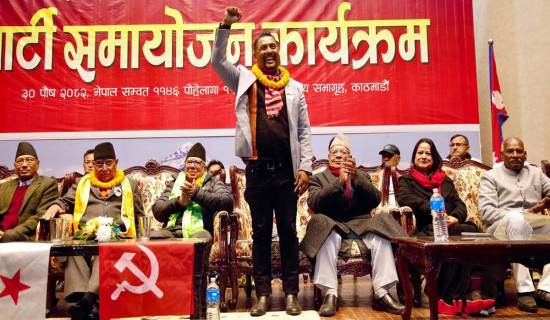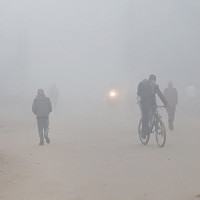- Wednesday, 14 January 2026
TRN Understands Value Of Culture
Culture is one of those things we think we understand but fail to put into words. What is culture? Is it the way we celebrate festivals? Does it have to do with religion? Is it what we eat and wear? Well, I don’t know, but the best I can tell you is that it is everything. Everything you think you are, everything that gives you your identity, and every tool you have ever used to understand the meaning of yourself and carve out a place for yourself in this society is culture. As I said, I do not know, but this is what I feel I have learned over the last two and a half years of reporting on culture and heritage at The Rising Nepal.
On Beat Reporting
I joined this daily straight out of university, and culture was the first "beat" I was given, which was daunting. I have always maintained an active interest in the field, but I did not want to pursue it professionally because I did not think I could. In journalism school, I was told to write the what, why, who, where, when, and how of an event or issue, tell the facts, give space to the voices of both sides, and give the audience full knowledge of what happened. Could I do this for culture?
Because cultural matters are not politics, police investigations, or accidents. They do not have a definite shape or form. They are, for lack of a better word, events within culture, and since culture, as mentioned at the start, is an extension of individual and collective identity, cultural matters are interpreted differently by different people and groups. They do not have neat, single answers to what occurred, why it occurred, who did it, and where, when, and how it started. The number of stakeholders can be in the hundreds, and the term "facts" can be open to interpretation. And this terrified me.I did not think I was up to the task, and I did not think I could do justice to the issues I would be expected to cover as a culture journalist.
Yes, a culture journalist, a reporter whose eyes and ears must scrutinise everything they see and hear.Why do we speak different languages? Why do we speak the same language differently? Why do we dress the way we do? What is the meaning of the dishes we eat? Why do we have the particular rituals we do for festivals, and can they be changed? Who built the temples we visit, and who are the gods we pray to? A culture journalist must examine himself or herself and everything and everyone around him or her.
I had shining examples in front of me both in-house and outside. Ms. Binu Shrestha had been writing about culture, history, and everything that came with them for The Rising Nepal for more than a decade when I joined on March 14, 2020. She had set a high bar that I was not sure I would be able to achieve.

Almost three years later, I do not know if I have reached the bar set by those who came before me, but I feel I have been able to do my best. And that is because this paper, its editors, and its readers seem to all understand the value of culture and the need to explore cultural issues. Here, art, culture, and history are not afterthoughts; they are not beats turned to when there is nothing else going on; here, they are important sectors that must be looked at and must be given a platform. One need only look at the number of culture stories that have appeared on the front page of this daily over the last five years to understand what I mean.
One must understand that every news outlet has its own editorial style and priorities, and not every media outlet chooses to focus on every issue in front of them. But it is tragic that in a country that prides itself on its cultural diversity, there are not that many "mainstream" media outlets that cover culture. They cover big festivals, but they do not dive deep and shed light on the things that go on behind the scenes. And the number of English-language outlets doing this is even lower. There are not that many news organisations disseminating comprehensive information about the rich customs and traditions that Nepal and Nepalis live by to a global audience.
There is a legitimate gap in this field that I am very glad The Rising Nepal has sought to fill through its news. But I use the term "news" very lightly here. What we do in the paper is not the inverted pyramid, 5W1H information pouring that the label is usually associated with.I would hesitate to call it a feature too, because features still demand an uninvolved and "objective" perspective.
Journalism and Creative Writing
No, the way we cover culture here at The Rising Nepal is through experimentation. We explore how we can best attract our readers, keep them interested throughout the story, and bring forth the issues that matter most to the relevant communities. At Rising, culture journalism is a hybrid of journalism and creative writing, as well as mythical (as in based on myths and legends) observation.
Our editors regularly push us to talk to people, not just experts and scholars, but average people who hold such great knowledge but are often overlooked because they do not fit our (reporters’) mould of what information sources should be, bring diverse stories, challenge existing ideas and notions, and write in a way that takes the readers on a journey from the familiar to the unfamiliar. Those who have worked in Nepal’s newsrooms may know how uncommon it is to receive this kind of editorial support and endorsement for a beat that has for the longest time been seen as "soft."
In the end, I would like to reiterate that The Rising Nepal understands the value of culture. But you do not have to take my word for it. Feel free to scroll through our website or flip through our pages and let our work attest to my claim.
(Mishra is a journalist at this daily)





-square-thumb.jpg)







